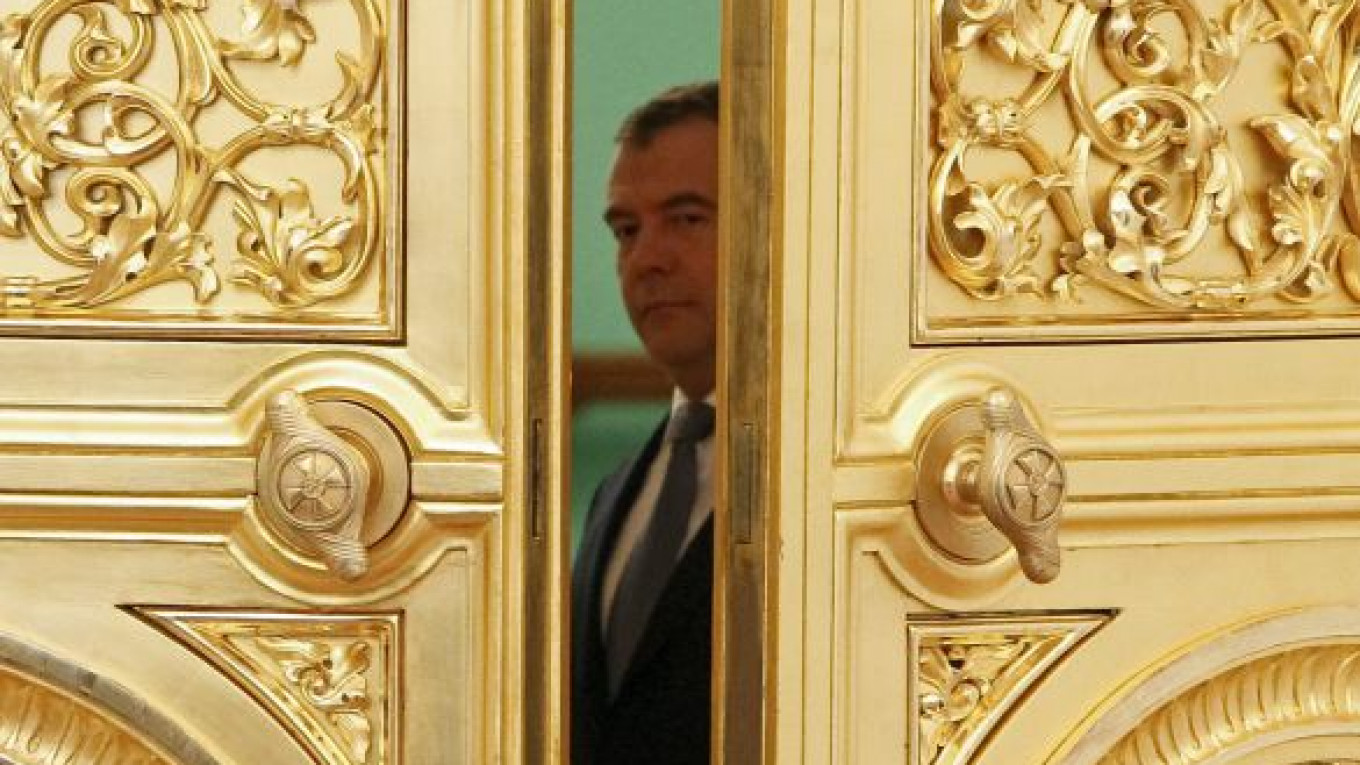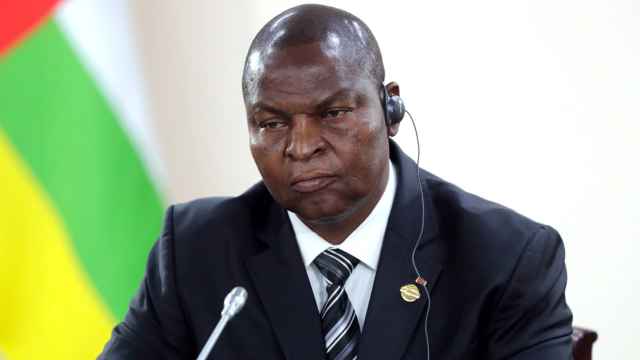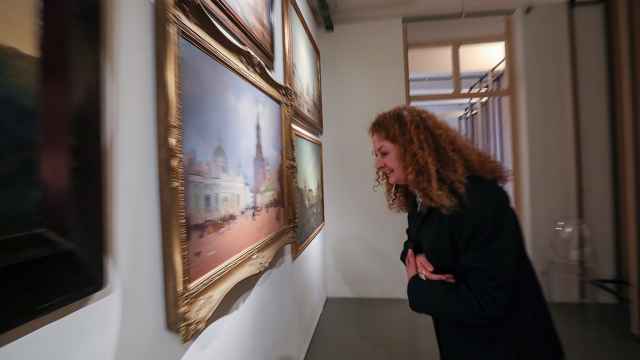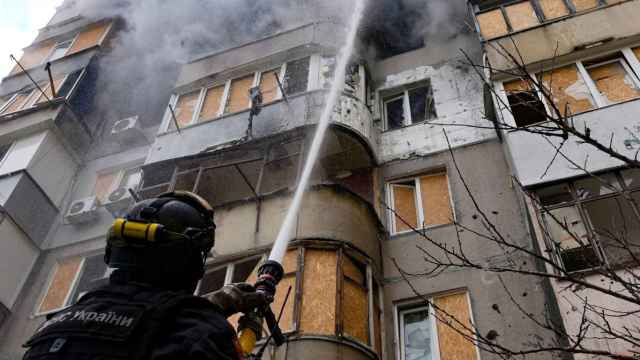Outgoing President Dmitry Medvedev, who is set to become the next prime minister, signaled in a speech Tuesday that taxes would not increase in the near term.
He made this and other statements as he presented his vision of the country's policies after his likely confirmation as prime minister by the State Duma on May 8.
Speaking to the advisory State Council in a grand Kremlin hall, Medvedev said it was "necessary" to achieve a more transparent and predictable regulatory environment, especially in macroeconomics.
"I will tell you straight, we now have no need to raise taxes," he said immediately after. "There are other means and sources for the execution of the programs that we announced."
Funding for the government's new spending plans should come from more effective disposal — or saving, for that matter — of money under the other budget allocations, he said.
Medvedev was apparently referring to plans to purchase state-of-the-art weapons for the armed forces and measures laid out in Prime Minister Vladimir Putin's newspaper articles during his campaign, which included greater support for families with children.
In the tax restraint move, Medvedev echoed his economic aide Arkady Dvorkovich, acting Finance Minister Anton Siluanov and Economic Development Minister Elvira Nabiullina.
The trio rejected the prospect of higher taxes at a conference in November.
Dvorkovich said at the time, "I am not simply against raising taxes. I will do my best so it doesn't happen."
Siluanov said then that the ministry had no plans to increase the fiscal burden in the next five to six years, while Nabiullina warned that the current taxes were at a critical level.
Former Finance Minister Alexei Kudrin last warned in September that higher taxes were imminent to support the government's growing wish list.
Medvedev opened Tuesday's meeting by saying he wanted to state his views for the country's future.
"I believe that as the current president, I have to express my position about the ideology of the development of this country," he said.
He named five key tenets for the government's economic policy. It must value entrepreneurship as a public virtue, seek to make the least possible interference in the economy, make sure law enforcement agencies are evenhanded with both private and state companies, meet world-class regulatory standards and involve all concerned parties in establishing the rules of the game.
He then outlined three areas to concentrate on.
Starting with state involvement in the economy, he said the government will publish a list of state companies in the next few months and invite a public debate about keeping them in state ownership. Following the debate, the government will move to sell some of the assets.
It wasn't immediately clear Tuesday whether that plan overlaps with the massive privatization effort that Medvedev has been pushing.
As the second area, Medvedev chose regulatory issues and taxes. In addition to ruling out a tax hike, he said the government must reduce the amount of paperwork required for customs clearance and bookkeeping.
"What is the point of creating tons of papers if they simply gather dust on the shelves of tax offices? We all know that," he said in reference to what businesses describe as excessive accounting requirements. "This is a pointless waste of time and money."
Moving to No. 3, he listed further measures to fight graft and promote competition to support economic expansion. The measures will include a new state procurement system and setting up "special agencies" to sniff out and prosecute corruption. He didn't elaborate on the agencies.
Medvedev mentioned job creation in this category and assured there would be a move to greater contract-based recruitment of military servicemen, who should number 400,000 "in five years."
He didn't leave out his pet project: Skolkovo. The effort to promote innovation in the special hub will continue, he said.
A Message from The Moscow Times:
Dear readers,
We are facing unprecedented challenges. Russia's Prosecutor General's Office has designated The Moscow Times as an "undesirable" organization, criminalizing our work and putting our staff at risk of prosecution. This follows our earlier unjust labeling as a "foreign agent."
These actions are direct attempts to silence independent journalism in Russia. The authorities claim our work "discredits the decisions of the Russian leadership." We see things differently: we strive to provide accurate, unbiased reporting on Russia.
We, the journalists of The Moscow Times, refuse to be silenced. But to continue our work, we need your help.
Your support, no matter how small, makes a world of difference. If you can, please support us monthly starting from just $2. It's quick to set up, and every contribution makes a significant impact.
By supporting The Moscow Times, you're defending open, independent journalism in the face of repression. Thank you for standing with us.
Remind me later.






